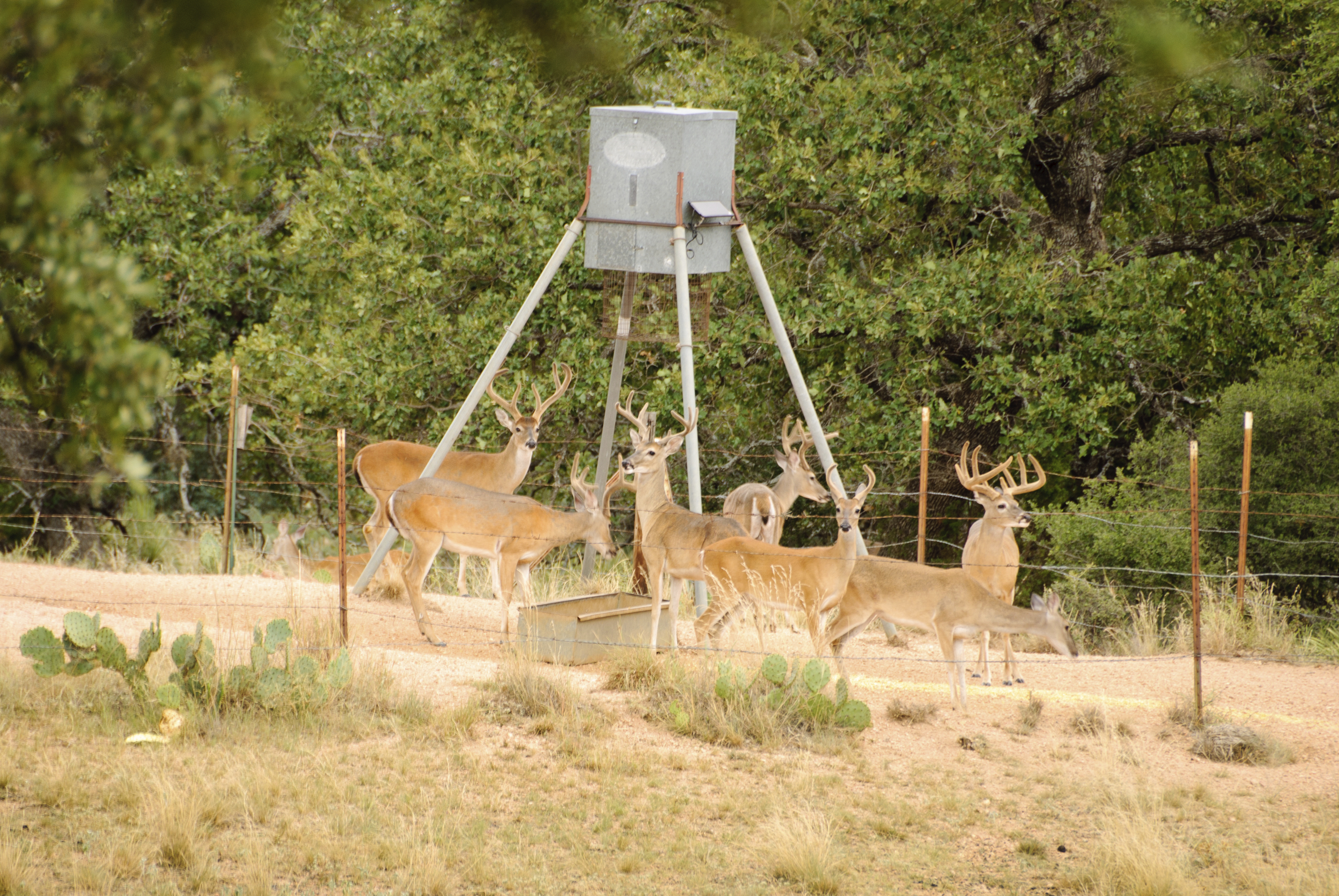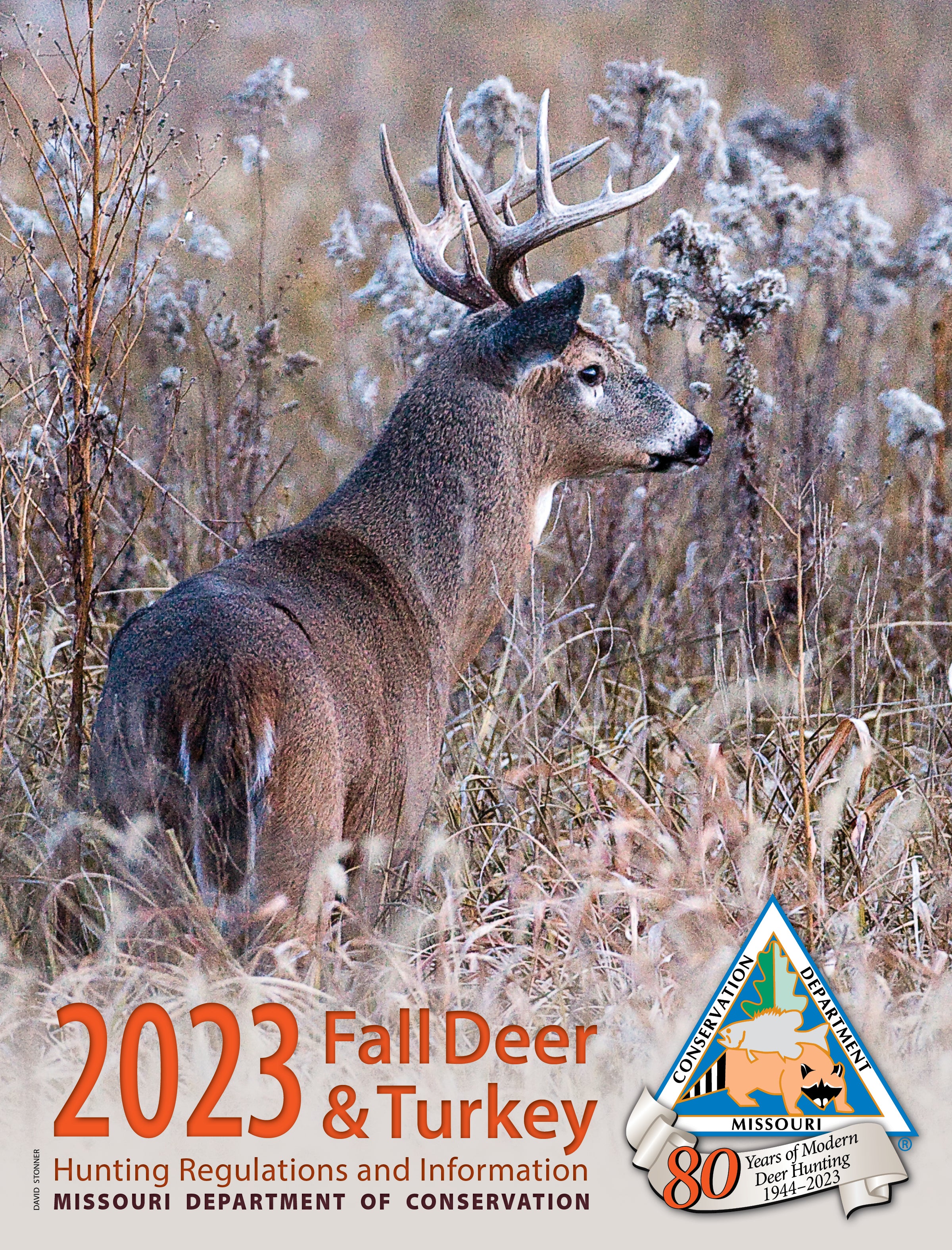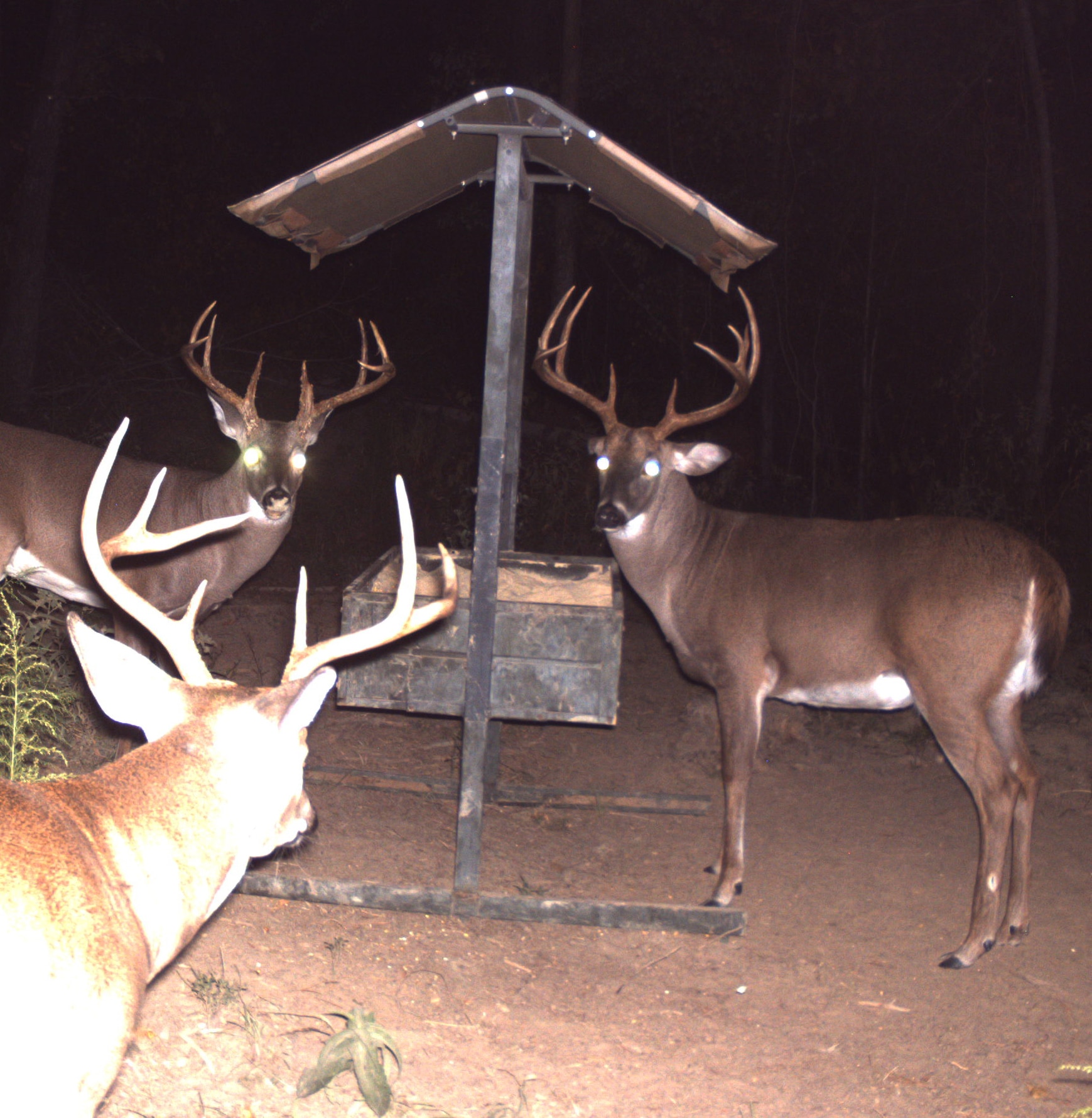Baiting deer in Kansas is legal outside of deer season. During deer season, it is prohibited to bait deer.
Understanding the legalities of baiting deer in Kansas is crucial for hunters looking to stay on the right side of regulations. Kansas regulations permit the use of baits for attracting deer outside the designated deer hunting season. However, the practice becomes illegal when the season starts, ensuring fair chase standards are maintained.
Conservation laws require hunters to familiarize themselves with the specifics of these rules, which can vary based on location and the type of game being pursued. Responsible hunting includes knowing these regulations to protect wildlife populations and to support sustainable hunting opportunities for future generations. Comprehension of local hunting laws is not only a sign of an ethical sportsman but also contributes to the overall safety and success of the hunt.

Credit: feedbandit.com
The Legality Of Baiting Deer In Kansas
Kansas draws outdoor enthusiasts with its vast hunting opportunities. Yet baiting deer remains a heated topic. Is it legal or not? The question hovers among hunters. Understanding the state’s stance on deer baiting is key. Both for lawful hunting and ethical wildlife conservation. Let’s dive into Kansas regulations and their implications.
State Regulations On Deer Baiting
In Kansas, the legality of baiting deer hinges on where and when. The Kansas Department of Wildlife, Parks and Tourism (KDWPT) sets the rules. These regulations can vary by season and management unit. It’s crucial for hunters to stay informed on current guidelines.
Private land offers more leniency. Hunters may use bait on their own property outside of big game seasons. Public lands have stricter guidelines. Baiting on public property is typically not allowed.
The key takeaway: check the latest KDWPT regulations before planning your hunt. Doing so ensures a legal and ethical hunting excursion.
Wildlife Management Implications
Beyond legality, baiting carries significant implications for wildlife management. The method can affect animal behavior and spread diseases. It can also impact the natural foraging patterns of deer.
Responsible hunters think about these effects. They work to preserve the balance of ecosystems. In Kansas, wildlife managers study and track these impacts. They aim to maintain healthy deer populations for future generations.
In sum, baiting is more than a legal issue. It’s part of a greater conversation about conservation. Hunters and wildlife agencies must collaborate to ensure sustainable hunting practices.
Essential Hunting Rules To Remember
Essential Hunting Rules to Remember are crucial when planning to bait deer in Kansas. Abiding by the state’s regulations not only ensures a legal hunt but also conserves wildlife populations for future generations. Before setting out on your hunting adventure, familiarize yourself with Kansas’s specific hunting laws.
Licensing Requirements For Hunters
Kansas mandates that all hunters obtain proper licenses. Several types of licenses are available:
- Resident hunting license for those living in Kansas.
- Non-resident license for out-of-state visitors.
- Senior and youth licenses offer discounts for eligible groups.
Proof of a hunter education course is mandatory for first-time hunters.
Seasonal Restrictions And Limitations
Deer hunting in Kansas comes with specific seasons:
| Season | Start Date | End Date |
|---|---|---|
| Archery | September 14 | December 31 |
| Muzzleloader | September 14 | September 27 |
| Firearm | December 4 | December 15 |
Baiting deer is legal during all hunting seasons. Yet, hunters must follow bag limits and antler-point restrictions.
Remember, regulations can change, so always check for updates before hunting.
Ethical Considerations In Deer Hunting
Deer hunters in Kansas face important ethical decisions. Choosing fair and responsible hunting methods reflects respect for nature. This section explores the ethics behind deer hunting practices, focusing on baiting. Let’s delve into two key principles that influence ethical deer hunting.
Fair Chase Principles
Fair chase is crucial in ethical hunting. It refers to the respect for and pursuit of game animals in a manner that does not give the hunter an improper advantage. These principles encourage sportsmanship and a profound appreciation for wildlife. Understanding and abiding by these principles ensures a level of hunting that maintains animal welfare and conservation at its core.
Impact On Deer Populations
Baiting can lead to artificial feeding habits and increased disease transmission among deer. As such, it can upset the ecological balance and affect deer populations. Responsible hunters must consider the long-term health of deer herds and the sustainability of hunting practices. Sound wildlife management seeks to ensure healthy deer populations for future generations.
| Practice | Objective |
|---|---|
| Respect Wildlife | Ensure fair chase principles and avoid baiting. |
| Understand the Impact | Consider how actions affect deer populations. |
- Follow state regulations.
- Hunt with skill and fairness.
- Respect deer and their habitats.

Credit: mdc.mo.gov
Alternatives To Baiting For Successful Hunts
For hunters in Kansas, baiting deer is a topic of consideration. Let’s look at effective methods for attracting deer without bait. These tactics can improve hunting success. Each is legal and environmentally friendly.
Natural Habitat Strategies
Understanding the natural movements of deer is key. Familiarize with their trails and feeding areas. Plant native food sources close to these trails. Increase hunting odds by using nature.
- Plant food plots with crops like clover and oats.
- Create watering holes to quench a deer’s thirst.
- Leave natural cover for deer to feel safe in your hunting area.
Attractants And Scents
Deer rely heavily on their sense of smell. Using attractants and scents can steer them your way. Be sure to pick scents suited to the local deer population.
| Type of Attractant | How to Use |
|---|---|
| Urine-based scents | Apply near your stand or on a scent trail. |
| Deer pheromones | Use during the rut to attract bucks. |
| Fruit-based scents | Place in areas where these scents are natural. |
Always follow Kansas regulations when using scents and attractants. These alternatives to baiting offer a responsible hunting approach. They can lead to fulfilling and successful hunts.
Consequences Of Illegal Deer Baiting
The Consequences of Illegal Deer Baiting in Kansas are severe. Wildlife regulations strictly prohibit such activities. Ignoring these rules can lead to serious repercussions. The Kansas Department of Wildlife, Parks, and Tourism (KDWPT) enforces these laws to maintain a fair chase hunting environment and to protect the health of the local deer populations. Engaging in illegal baiting disrupts the balance of the ecosystem and brings hefty penalties for those caught.
Legal Penalties And Fines
Legal ramifications for illegal deer baiting can result in substantial fines. The KDWPT sets fine amounts based on the severity of the violation. Offenders may face:
- Misdemeanor charges, with fines that could range in the hundreds of dollars.
- Restitution fines to compensate for the illegally taken wildlife, often worth thousands.
The exact fine amount varies depending on the case. Let’s not forget additional court costs that often accompany these fines.
Effect On Hunting Privileges
Illegally baiting deer can lead to the suspension of hunting privileges. This affects not just hunting in Kansas but may extend to other states as well. The consequences include:
- Temporary or permanent license revocation in Kansas.
- Loss of hunting privileges in states part of the Wildlife Violator Compact.
Hunters found guilty risk losing their right to hunt, sometimes for life. Protecting this privilege means adhering to the established hunting rules and regulations.
Staying Informed: Resources For Kansas Hunters
Welcome, Kansas hunters! Effective and responsible hunting starts with staying informed about the legal ways to pursue game in our great state — particularly when considering baiting deer. Kansas has specific regulations in place to ensure the fair chase and healthy population of wildlife. Let’s delve into the key resources available to you.
State Wildlife Agency Materials
The Kansas Department of Wildlife, Parks, and Tourism provides comprehensive materials for hunters. Here are the resources they offer:
- Regulation Summary Booklets – Distill pertinent hunting regulations, including baiting deer.
- Online Resources – Offer updates on changes to laws and season dates.
- Publications and Alerts – Keep you informed about wildlife research and management.
Stay vigilant for revisions to ensure your hunting practices comply with the latest standards.
Hunter Education Programs
Kansas also provides Hunter Education Programs tailored to new and seasoned hunters alike. Below is a snapshot of what they cover:
- Safe handling and responsibility with firearms.
- Understanding of Kansas hunting laws, including baiting regulations.
- Wildlife conservation and preservation methods.
These programs are crucial for honing your skills and knowledge as a responsible hunter.
Remember: Hunting success is not just about the harvest. It’s about respecting wildlife, understanding the ecosystem, and engaging in ethical hunting. Utilize these invaluable resources to enjoy a safe and lawful hunting experience in Kansas.

Credit: deerassociation.com
Frequently Asked Questions On Can You Bait Deer In Kansas
Is Deer Baiting Legal In Kansas?
Deer baiting is not legal in Kansas during any hunting season. The state prohibits the use of bait to attract deer for the purpose of hunting, as part of its game management and fair chase ethics.
What Types Of Bait Are Prohibited For Deer In Kansas?
In Kansas, any grain, fruit, vegetables, nuts, hay, or other food that can lure deer to a specific hunting area is considered illegal bait. Salt and mineral blocks are also included in this prohibition.
Can You Use Deer Attractants While Hunting In Kansas?
While using bait is illegal, natural deer attractants like urine-based scents are legal in Kansas. Hunters must ensure these attractants do not contain any consumable materials.
What Are The Penalties For Baiting Deer In Kansas?
Violating deer baiting laws in Kansas can lead to fines, hunting license suspension, and potential confiscation of hunting equipment, including firearms or bows used in the act.
Conclusion
As we’ve explored, Kansas has specific regulations for deer baiting that must be followed. Always stay informed on current laws to ensure a responsible and legal hunting experience. Your respect for these guidelines reflects a commitment to wildlife conservation and ethical hunting practices.
Enjoy your time in the great outdoors of Kansas!


